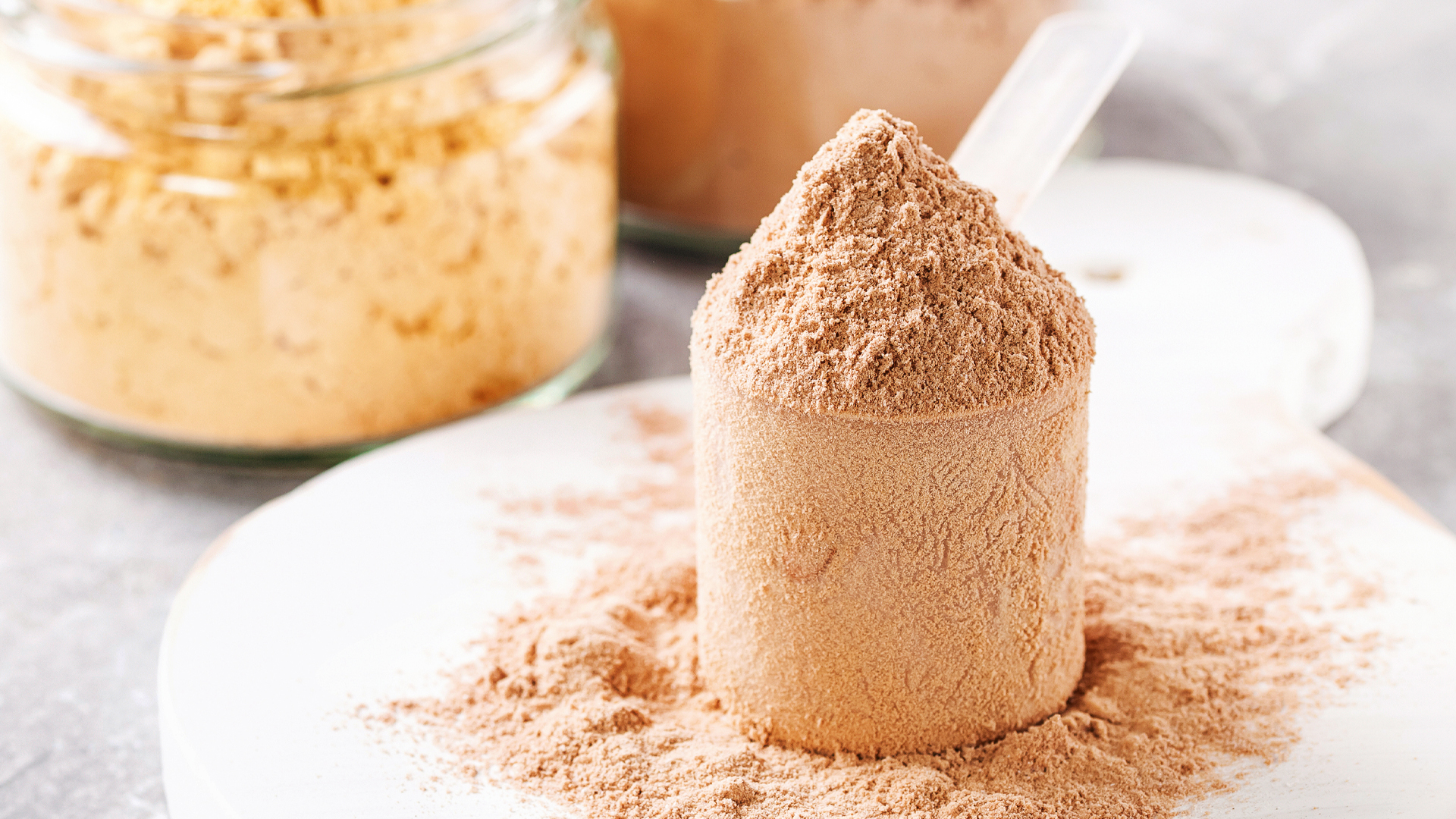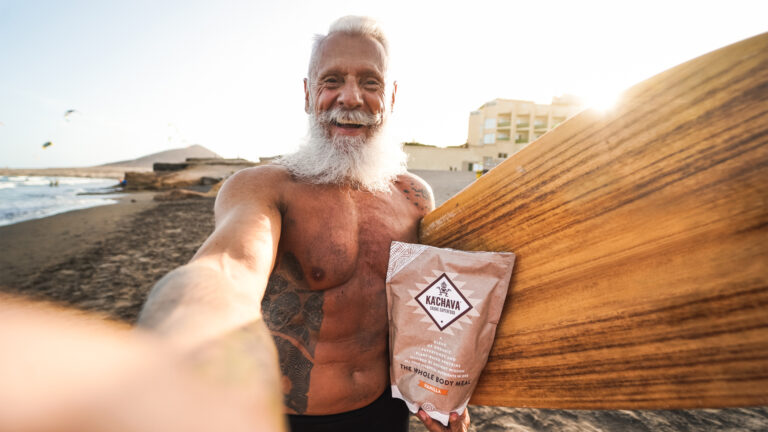If our bodies were houses, fat might be insulation and carpeting, and carbs could be furniture and people. But protein? Protein would be the wood, the bricks, the mortar, the steel. The structure. Protein and amino acids, the building blocks of proteins, are crucially important.
So what is protein? How does protein get used by our bodies and contribute to health, wellbeing, and overall function or dysfunction? How do we know if we’re getting enough and the right kind? And how can we choose the right protein powders for quality, convenience, and health? Let’s dig in.
Protein: What it Really is and What it Does in the Body
Protein is made up of amino acids — the building blocks of most of the stuff in our bodies. We need amino acids to produce tissues like muscle and cell walls as well as important molecules like enzymes, hormones, neurotransmitters, and antibodies. But we (rarely) consume isolated amino acids. Instead, we eat foods with proteins.
Each kind of protein contains one or more of the 20 kinds of amino acids. And all protein you consume is broken back down into amino acids during digestion and before being placed into circulation in the plasma in your bloodstream. This is how amino acids get to the cells that need them.
Proteins also help replace worn-out cells, transport substances throughout the body, and help with growth and repair. Without adequate protein intake, our bodies can’t function well at all. It will start with the breakdown of muscle tissue to harvest proteins to obtain amino acids. This can obviously have a negative impact on muscular function, from athletic performance to strength to serious health problems if major muscles like the heart are affected.
Outward signs of protein deficiency include slow wound and bruise healing and problems with nails and hair (cells that are made of nearly all protein). The United States’ recommended intake for protein is approximately 50 grams per day for an adult. Most Americans are consuming double that already. So what’s the problem? The source and the quality.
To go back to the house analogy, most folks are (unbeknownst to them) trying to build a house with rotten wood. We can choose better, and it starts with high-quality, ethically sourced whole-food proteins. Think organic pastured eggs, grass-fed beef, or small fish (like sardines).
Are Whole Food Proteins Better?
Nutrients are most easily absorbed when surrounded by their original neighbors. Whole foods come along with other nutrients: vitamins, minerals, phytochemicals, and more. These all work in synergy with your body.
How Much Protein Do I Need?
The other caveat of the protein recommendations is that 50 grams per day is the minimum to prevent deficiency. This says nothing about allowing for enough amino acids in circulation for repair and general reserve. Most of us need a little more protein than the minimum.
Perhaps you are recovering from injury or illness. Maybe you do have real-food protein once per day but would like to have something more portable for another meal. And you could also be looking to perform as an athlete, with or without gaining weight.
The benefits of consuming higher protein—in the range of 100+ grams per day and up—are many. Only rare conditions would indicate the medical need for a low-protein diet. Here are a few positive impacts of higher protein intake.
Appetite control: higher protein tends to boost satiety.
Muscle growth, especially when older: protein is needed (along with strength training) to build and maintain muscle and is vital when in mid and later adulthood.
Post-exercise recovery: getting building blocks for repair to your muscles quickly after a workout can help you be ready for the next workout, faster.
Improved immune function: proteins are needed to build antibodies, and serve several functions in the immune system. Those who are protein-deficient are more susceptible to viral and bacterial infections.
Okay. You’re convinced that higher protein can be beneficial so long as it comes from high-quality sources. However, getting enough real-food protein can be inconvenient and often expensive. How can you add more? There’s a relatively simple and convenient solution: protein powders.
Health Benefits of Protein Powders
Luckily, we are no longer in the 1990s when most of the formulations were aimed at mass gain or extreme weight loss, both featuring high amounts of cheap and low-quality protein sources. They also had processed sugars (mass gainers) or artificial sweeteners (weight loss), along with artificial flavors and chemicals that may have sounded impressive but only inflated the price tag.

Now consumers can choose from hundreds of protein products, from toxic junk to bioavailable bliss. We’re going to focus on the latter—those that take only the best ingredients with minimal processing and deliver a protein powder you can sink your teeth into (or your blender blades). But first, we need to talk about the potential downsides of poor quality protein powders.
Buyer beware: a high price tag does not guarantee quality. The other side is that a cheap price usually means cheap ingredients. So this means you should be prepared to spend money on good protein powders, but make sure you’re really getting the best that you can.
Here are some issues with protein powders that could negatively affect your health and nutrient status:
- Mycotoxins: produced by molds during food processing, can be responsible for many bodily sicknesses and general feelings of ill-health
- Lower bioavailability: animal-based proteins are more efficient for the body to utilize than single plant sources—blends of plant proteins raise the bioavailability significantly
- Artificial sweeteners: detrimental for the gut microbiome
- Heavy metals, BPA, and more: plant-based protein powders tended to have higher contaminants than animal-based protein powders
It can be difficult finding out which brands are reputable and which ones are better left on the shelf. That’s why the New York Center for Innovative Medicine conducted its own study of protein powders in the United States to determine which ones we could recommend.
Our Top 8 Protein Powders For Nutrition Without Toxic Ingredients
1. The System by Stacy
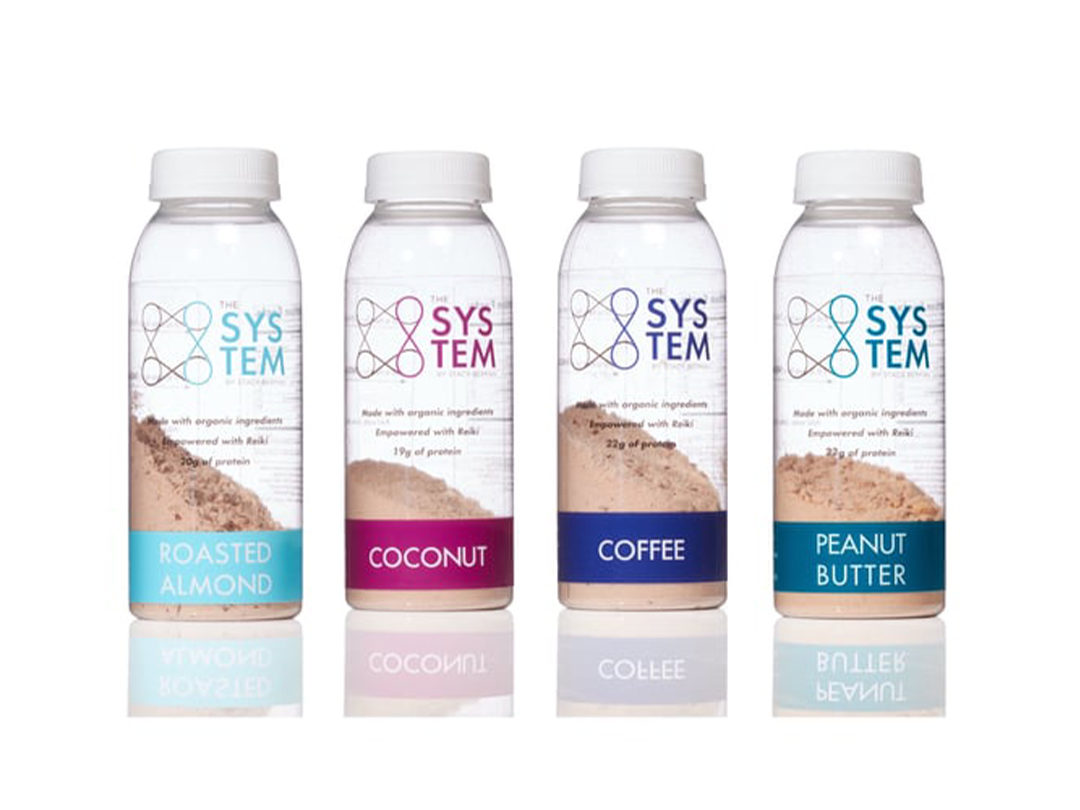
Stacy Berman gained a following through New York bootcamp fitness classes, and then she used two decades’ worth of nutrition, healing, and body health knowledge to create a protein meal replacement that was better than anything she could find. It’s called The System.
The Reset protein powder blend begins with grass-fed cold-processed whey—the gold standard of bioavailability and sustainability. What makes the Reset blend unique are two gut-friendly digestive enzymes: bromelain and papain. The base flavor notes come from coconut sugar and carob, then each recipe has its own “star” such as peanut flour, coffee, or almonds. It’s a simple ingredient list that just works.
2. Bulletproof Collagen Protein Powder
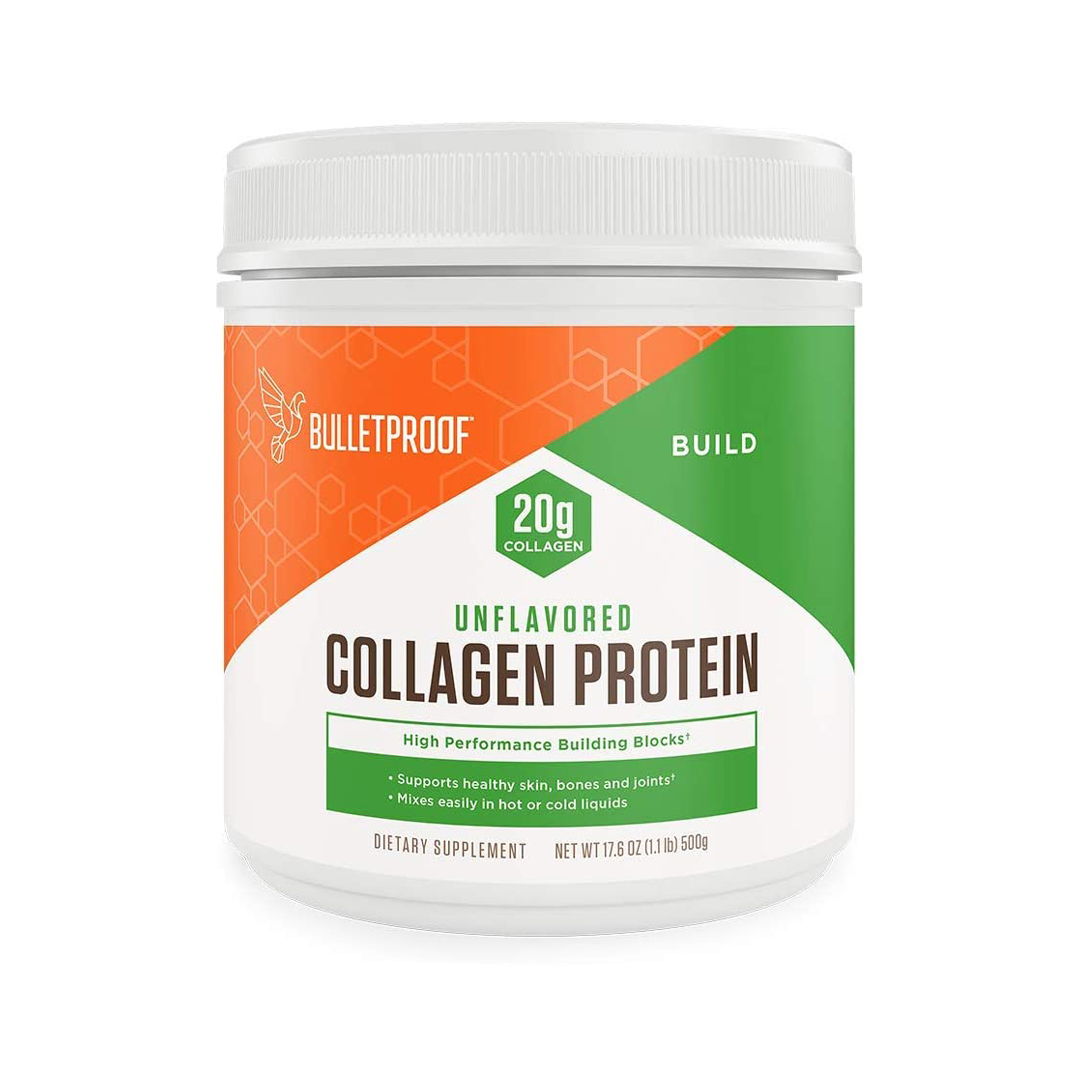
Dave Asprey has been figuring out what works in nutrition and biohacking for decades, experimenting on himself before biohacking even had a name. His depth of knowledge finally started getting noticed when Bulletproof Coffee became a miniature sensation in the paleo diet world. From there, the Bulletproof world has expanded to coffee, oils, and this protein powder.
Make no bones about it – this is basic, nutritious, and to the point. This protein powder is literally just collagen from grass-fed cattle. You’ll get ample amounts of tissue-building amino acids and nothing else; no filler, no flavor, no sweetener.
3. Garden of Life Raw Organic Protein
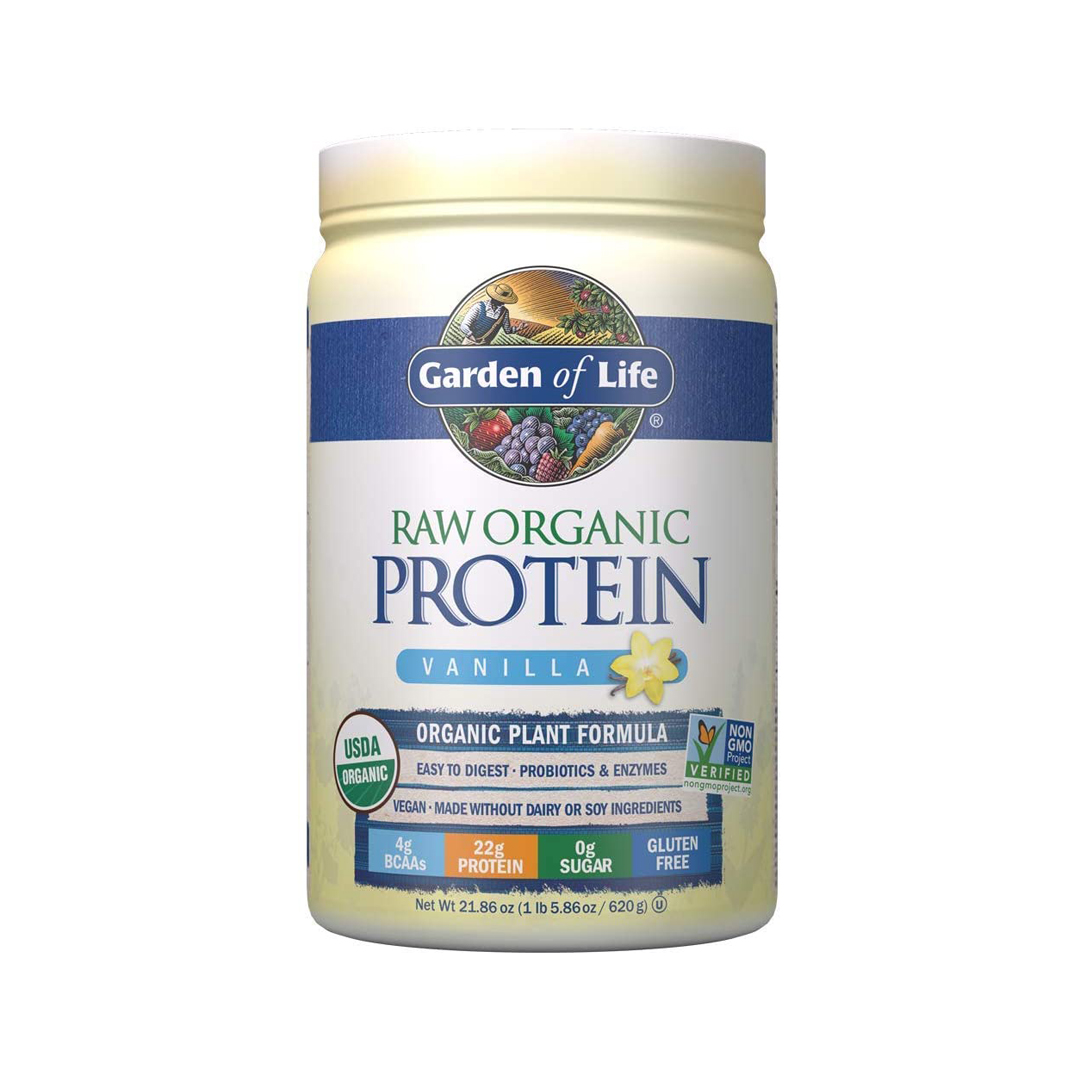
You might look at the paragraph-long ingredient list and think, “what the heck is this doing on this list?” But look closer: that whole paragraph is clean vegan protein in a blend that maximizes amino acids and bioavailability, natural flavors that include vanilla and stevia, and a gut-health blend of prebiotics and enzymes. There’s nothing not to like in this powerhouse recipe.
This truly is a meal in a glass (or a blender bottle, or whatever your container of choice), and meant to be a complement to your life for nutritional support and whole-body health. It’s a well-known brand and formula, and that’s for good reason.
4. Thorne Whey Protein
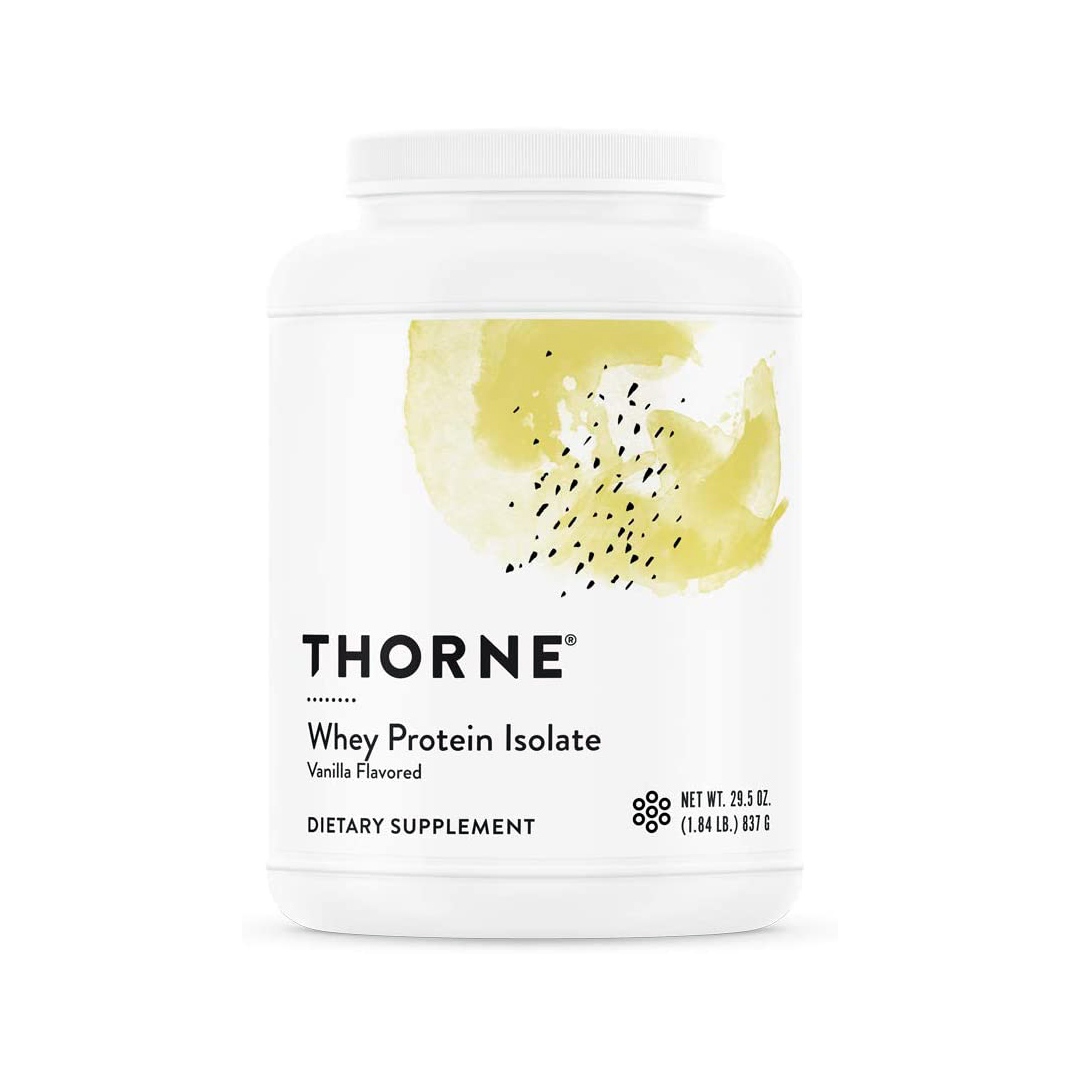
Straightforward flavor, simple recipe. Thorne starts with easily digested whey and then adds just enough extras to make it delicious completely on its own. This blend is certified by the National Sport Foundation for quality and performance.
Thorne as a company is one of the best at rigorously testing their own products AND getting third-party testing to validate all of their quality controls and nutrient levels.
Their whey protein marries the best of science and flavor without adding extravagant extras that you usually do not need. It’s a great choice for daily smoothies and to support athletes as they go through workouts on a tight schedule.
5. Thorne MediBolic
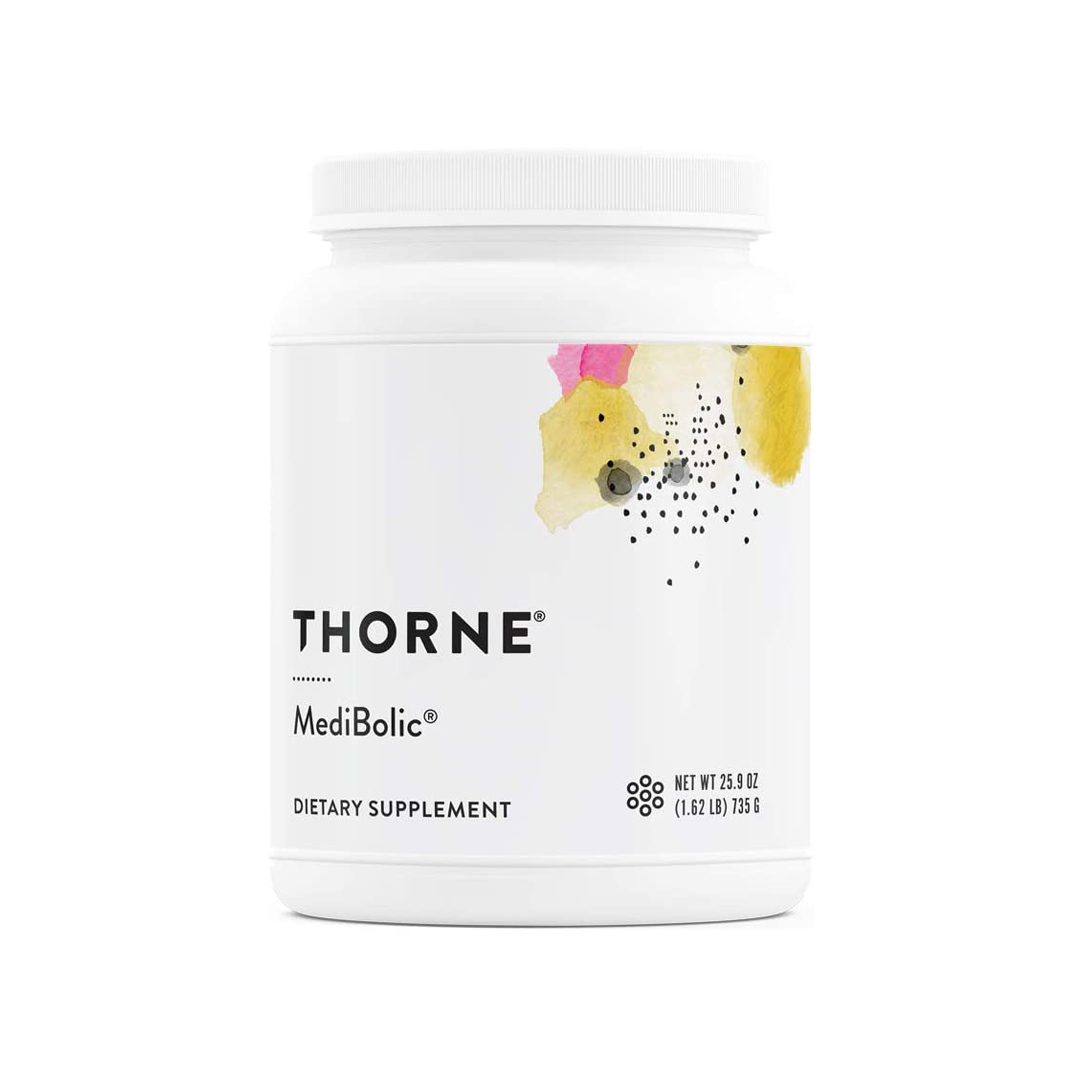
Targeted at complete nutrition, with a specialized impact on whole-body health. That’s what MediBolic is shooting for, and it seems to have hit the target with a duo of synergistic protein sources and a bevy of additional nutrients, supplements, and enhancements to promote gut health, satiety, and nutrient uptake.
Unlike the whey protein formula, MediBolic pulls out all the stops to give you a premium protein supplement package. Nothing is left out here, from essential vitamins and minerals to digestive enzymes and fermentable fibers.
Don’t forget that Thorne is one of the best at rigorously testing their own products, while also getting third-party testing to validate all of their quality controls and nutrient levels. When it counts, MediBolic is a targeted solution to supporting your digestion and nutrient absorption. It’s not cheap, and in this case you absolutely get what you pay for.
6. Spirutein
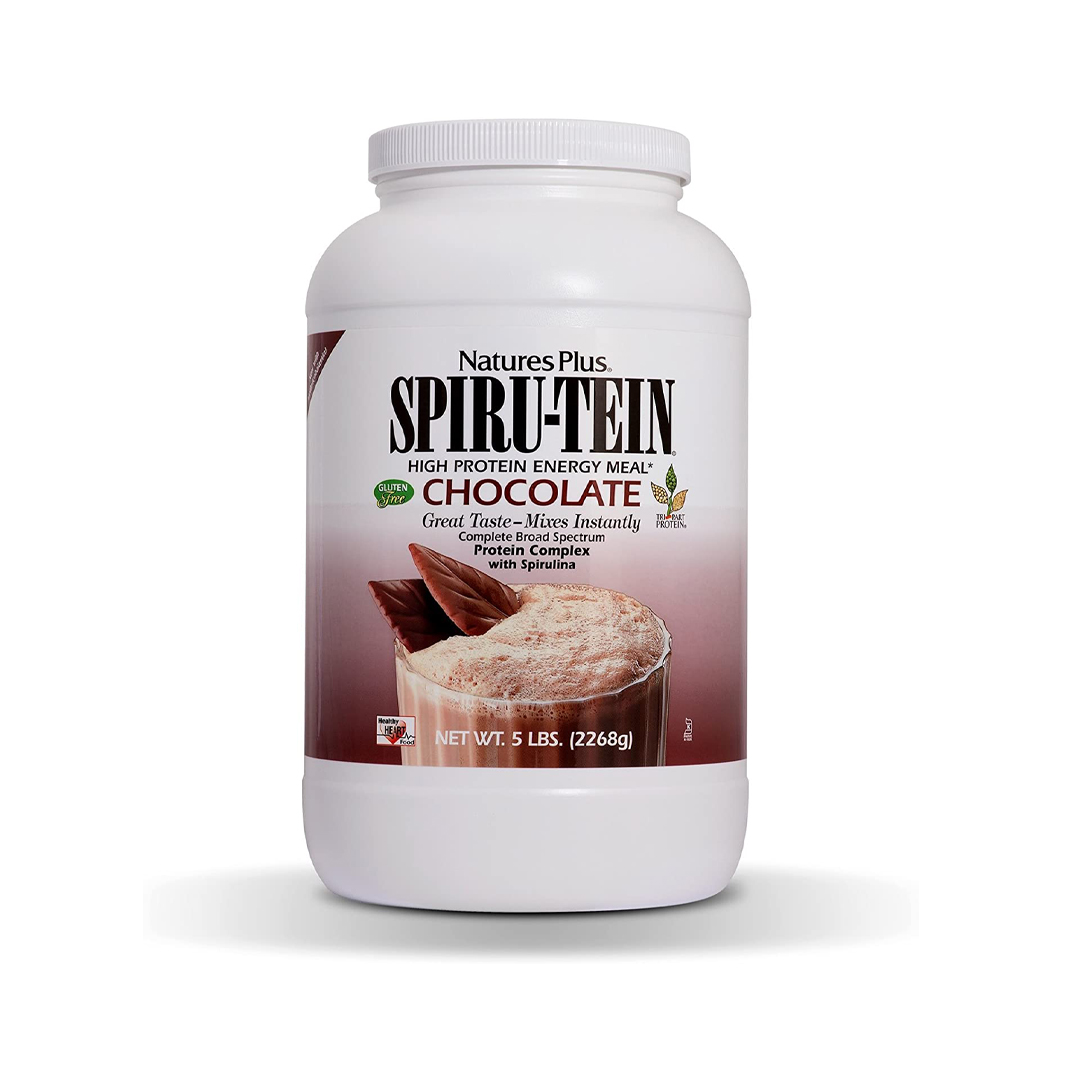
Spirutein? That protein powder that you’ve seen for years on the shelf of your health food store and it just looked a little too… tasty? Yes, Spirutein. All of Spiruteen’s protein powders are on our list because the ingredients support whole-body health and nutrition, and their ingredients are certified to both US and European organic standards. It’s a company commitment that makes sense and is worth supporting.
The best part is that Spirutein can be found in what seems like an endless variety of flavors from peaches & cream to chocolate. Their formulas include plant-based proteins (including fermented soy, rice, and pea protein) as well as whey-based recipes. For those who like to avoid any kind of sweetener, Spirutein also makes “Simply Natural” vanilla and chocolate blends so you can add extra flavor or sweetener as you’d like.
7. Orgain Organic Plant Based Protein Powder
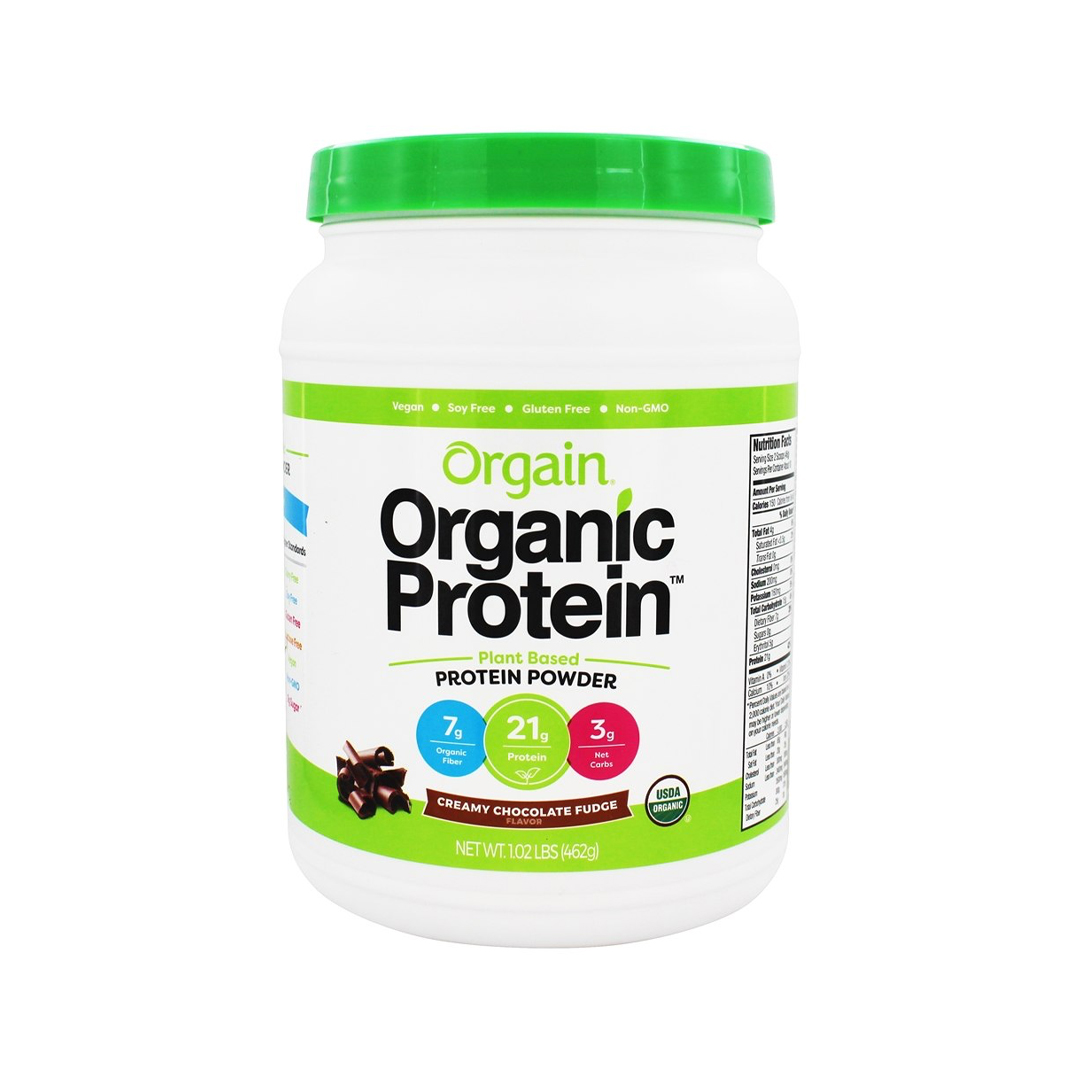
Another plant-based protein powder that made the Innovative Medicine cut, Orgain has a lot going for it, starting with an all-organic ingredients list. Their protein blend of pea protein, brown rice protein, and chia seeds is a good foundation. But the flavor gets even better with the addition of their vegan creamer formula, which includes high-oleic sunflower oil for nutrient absorption.
Orgain includes a few different ingredients to help make the powder easily blendable, so check if you are sensitive to certain fibers. If you’d like to add your own preferred sweetener, Orgain makes a completely unsweetened plant-based protein powder as well. Bananas are always a great choice for smoothies with just the right amount of sweet and creamy texture.
Now that you know the nutritional and whole-body goodness in Orgain, it’s good to know that you can find it in many locations, from grocery stores to big-box membership retail shops. The first time I tried Orgain was picking some up from my monthly big grocery trip. It sat by the caseload on one of the end caps with a good price and enticing ingredient list (once I picked one up to see what was inside). After my first smoothie, it was clear I’d made a great choice.
8. Primal Kitchen Primal Fuel Whey Protein Powder
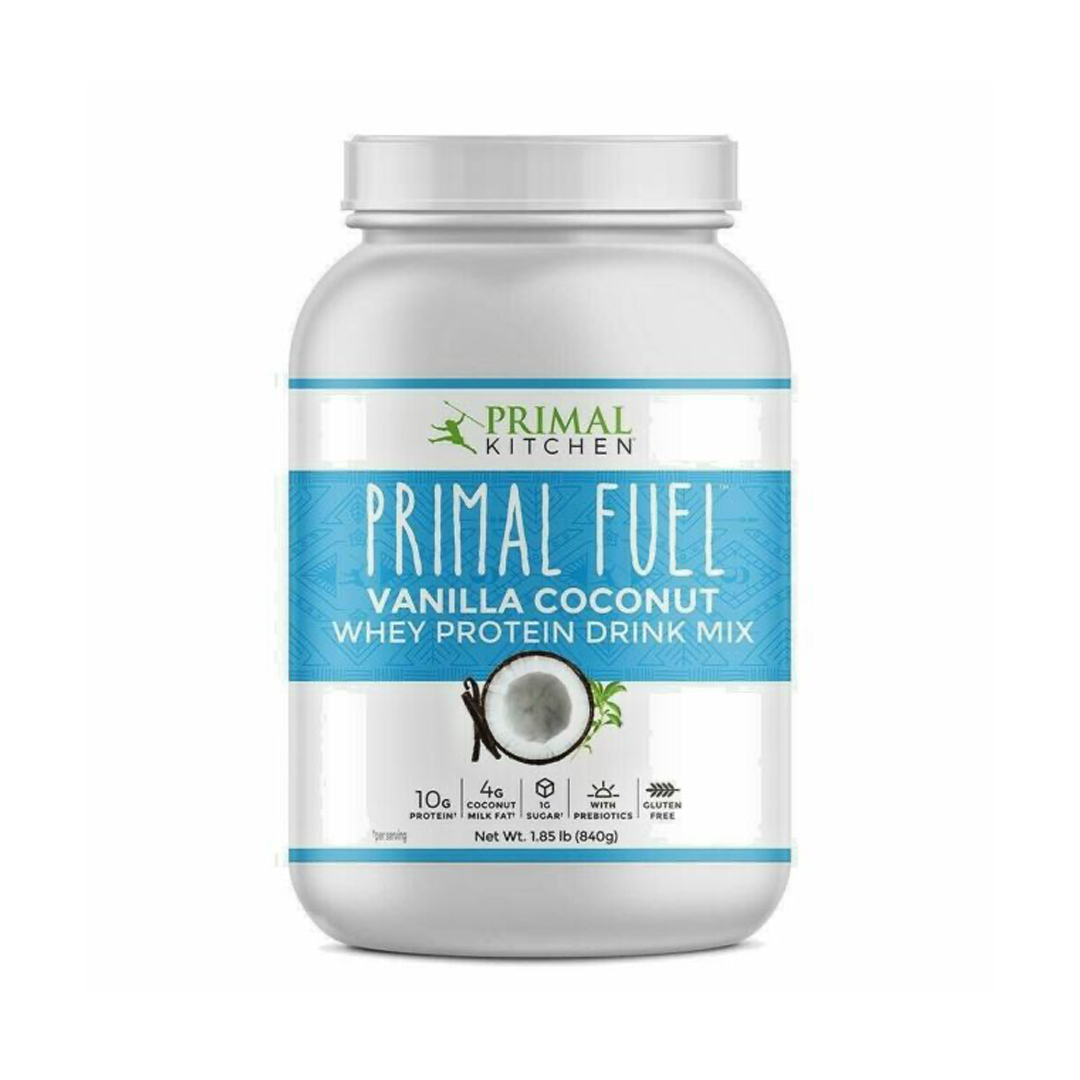
When a triathlete at the peak of fitness walks away (literally) from their habit, you know that something major has shifted. That’s what Mark Sisson did. He’s the founder of marksdailyapple.com and a former “endurance junkie” (in his own words).
In the world of paleo and primal eating, Sisson’s in-depth writing and his Primal Kitchen creations have become a mainstay to everyone looking for better health, and for good reason. He has a history of experimentation to find “what works” rather than just follow trends.
His protein powder follows the best research available and contains whey protein isolate as the primary ingredient. This simplicity is followed up by no artificial sweeteners, choosing instead for a hint of monk fruit and stevia. There are no extra vitamins to mess up your daily supplement routine, and a great creaminess from coconut powder. It’s a great protein powder from a good company.
The Bottom Line:
Quality is King When it Comes to Protein Supplements
At Innovative Medicine, we genuinely believe that knowledge is power, and with that knowledge comes the potential for better health. In a perfect world, you would be able to trust that what you purchase from any producer to drink, eat, or put on your body is safe. Unfortunately, this is not always the case and as a consumer, you have been burdened with the responsibility to dig deeper and investigate what you decide to put on and in you since your health and wellness are at stake.
This burden shouldn’t exist, though, which is why we have taken it upon ourselves at Innovative Medicine to continually research, test, and provide you with the latest and scientifically supported information about everything from probiotics and Botox to magnetic clay baths and protein powders. Your health, our health, and the health of our families and communities is what drives us.
And should you choose to start your day with a breakfast blender-bottle smoothie made with protein powder, we want it to be the highest quality available.
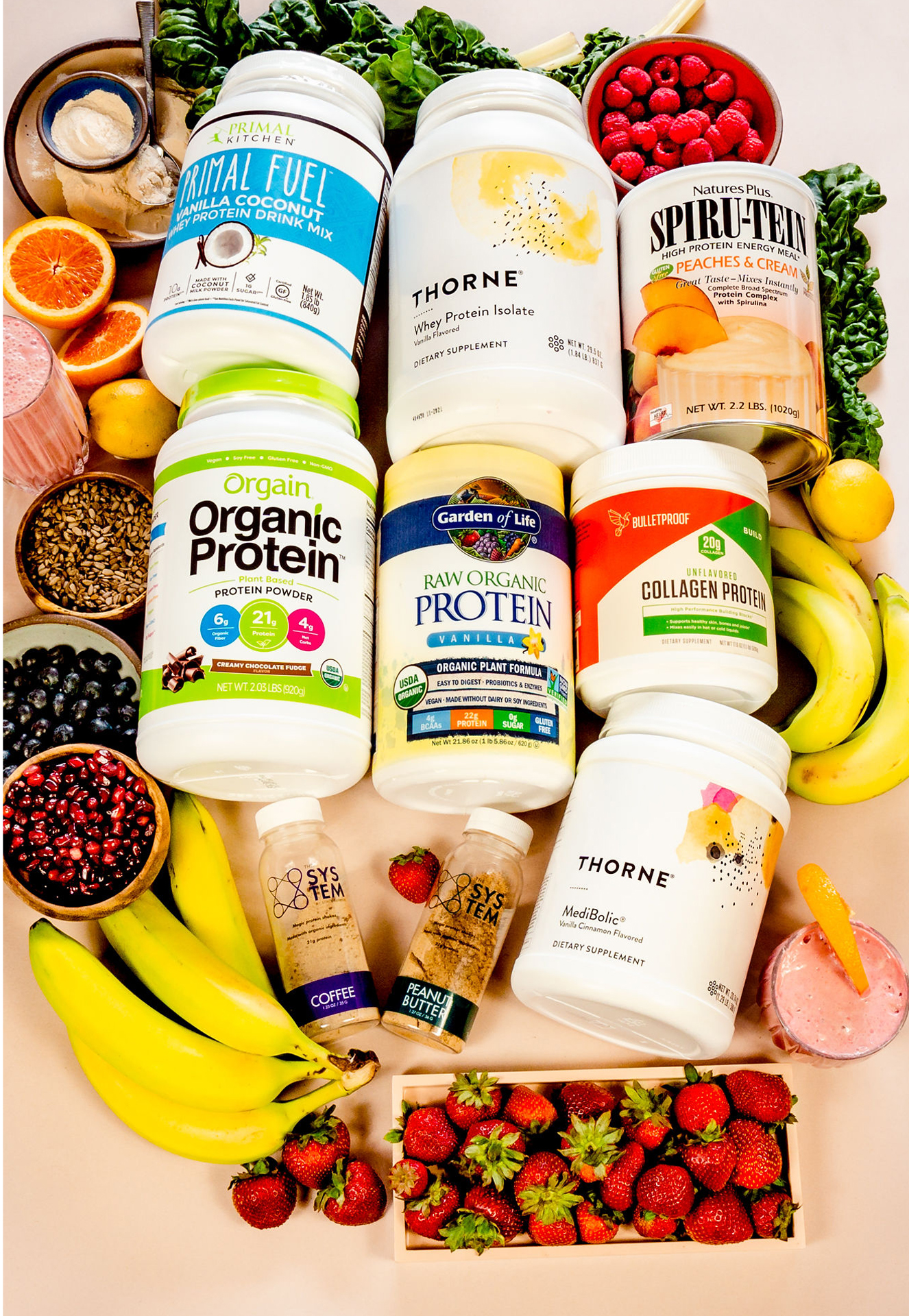
* Disclaimer: The statements made in this article have not been evaluated by the Food and Drug Administration. Any products or treatments mentioned are not intended to diagnose, treat, cure, or prevent any disease. Please consult a licensed medical practitioner for medical advice. At Innovative Medicine, we believe in transparency. We want you to know that we may participate in affiliate advertising programs pertaining to products mentioned herein.
